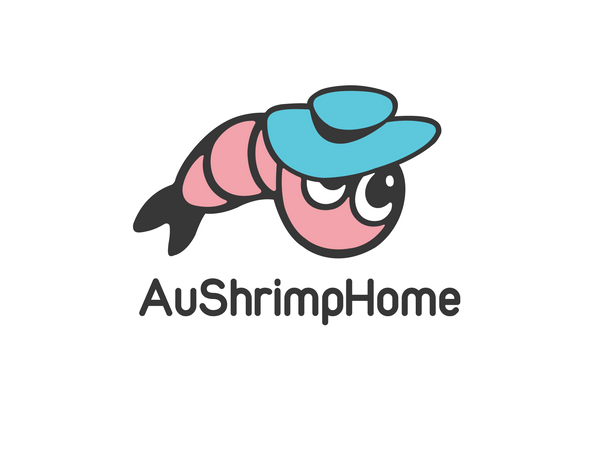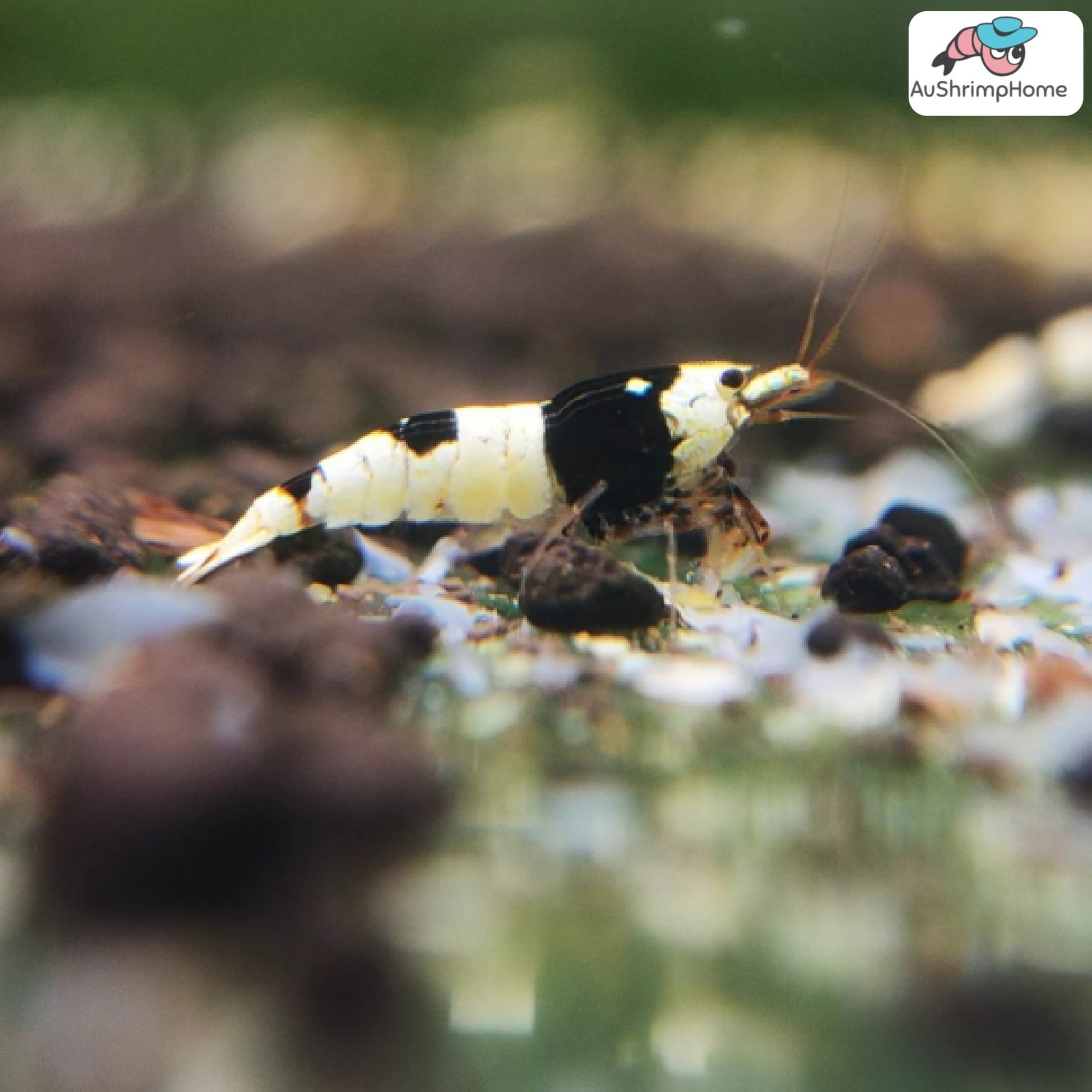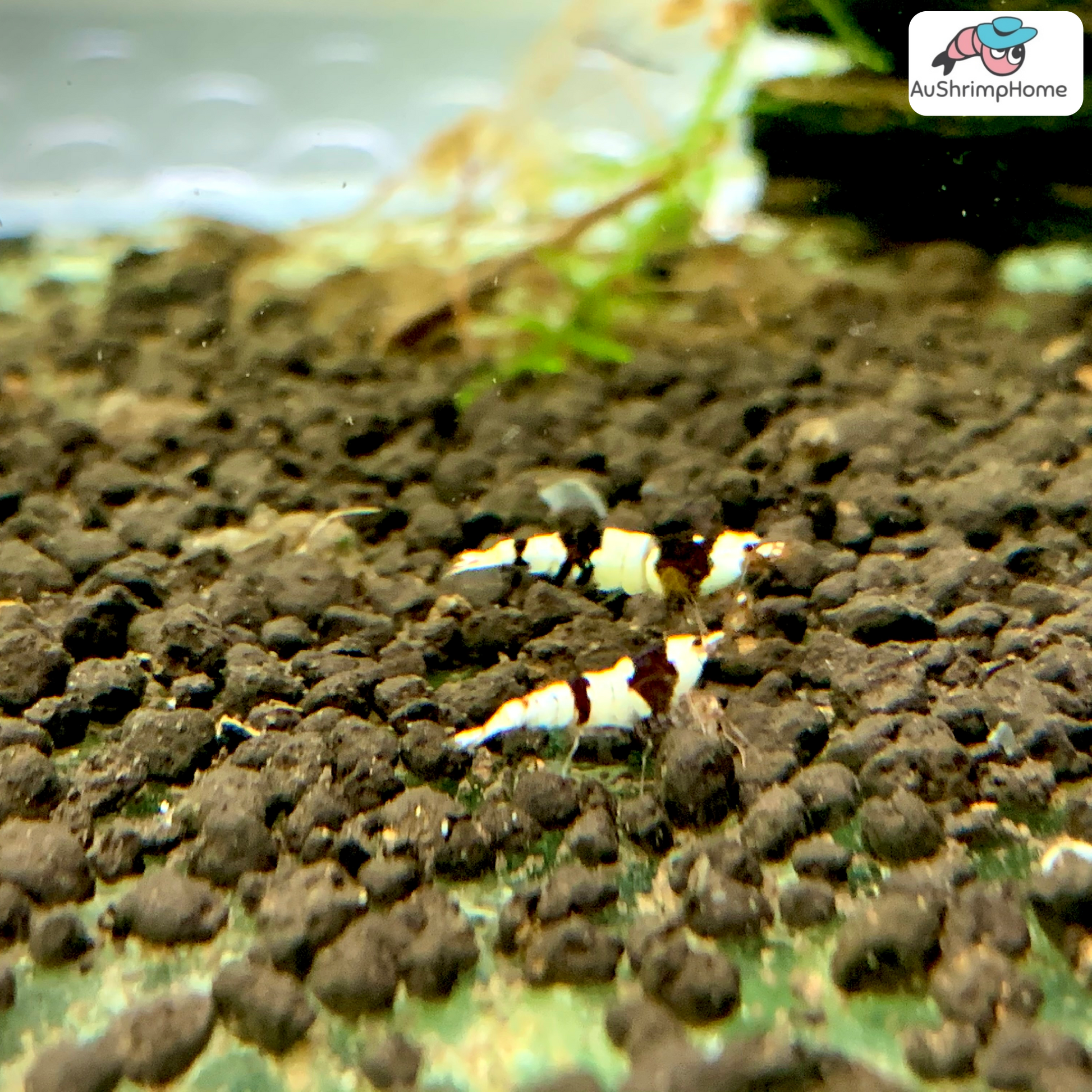Pure Black Line (PBL)
Pure Black Line (PBL)
Low stock
Couldn't load pickup availability
The Pure Black Line (PBL) shrimp line that we are familiar with originates from JBB, and is called "Pure Blood" by the Japanese. Then breeders in Taiwan brought the JBB to cross with their shrimp and marketed it as PBL. Taiwan's PBL usually has whiter porcelain than JRB, and because of crossbreeding with domestic shrimp for fast propagation, low-grade PBL often has a problem of producing Golden or golden porcelain. The higher the PBL rank, the lower the rate of Golden appearance in later generations is to almost zero. The S, SS, and SSS classification for PBL is also a ranking system that originated in Taiwan and is rarely used by breeders in Japan. As such, the golden problem only occurs with PBL.
Diet: like most Freshwater Shrimps, they are omnivores and will eat any food they can find in the tank. Remember that Shrimps are scavengers in the wild, they will eat anything they find and are not used to a constant food source. Therefore, you can feed them with a lot of things. However, it is better to give them the amount of food that the shrimp can finish within two to three hours. Ideally, it is not good to overfeed as food sitting can contaminate the water. Also, don't worry about not feeding for a day or two. This is perfectly fine and it will not harm your Shrimp. In some cases, it's even better not to feed for a few days to let them clean their system and keep your water condition at its best.
Tank Requirements: There is no need to keep the PBL in a large tank. However, it is very important to keep the Shrimps in specific conditions. Keep in mind that this species is quite sensitive and does not respond well to bad water values. It means that a 10 gallon (40 liters) tank is an optimal choice especially if you are new to the hobby. The bigger the tank, the easier it is for you to stay stable compared to smaller setups
If you can't exactly meet those criteria, at least be consistent in water quality. Obviously, the aquarium must be fully cycled and set up before any Shrimp are introduced. Can't emphasize enough how refined the shrimp is. That is why extreme water parameters should be avoided.
Also, a lot of Shrimp breeders find that as you approach the high levels of the species, the water parameters become even more important.
Substrates: You need a buffered substrate. Buffer substrates keep the pH at a stable level. Meaning if your water is at a higher pH, the buffer will lower it. Also, shrimp farmers use a substrate to filter out hardness in the tank as the source water can be a little harder than necessary.
Basic Parameters:
Tank size (optimal) 10 gallons (~40 liters)
Maintain breed Medium
Difficulty Medium (a high order shrimp).
Size 2.5 – 3 cm (~ 1 – 1.25 inch)
Optimal Temperature 21 – 23°C (~70°F – 74°F)
Optimum pH 6.6 – 6.9 (6.2 – 7.2)
Optimal GH 4-6 (3-7)
Optimal customer 0 - 1 (0 - 4)
Optimal TDS 120-160 (100-250)
Nitrates Less than 20 ppm
Algae / omnivorous diet
Good manners
Lifespan 1-2 years
For further information about tank setup, caring, breeding,... Please read our Blogs post.
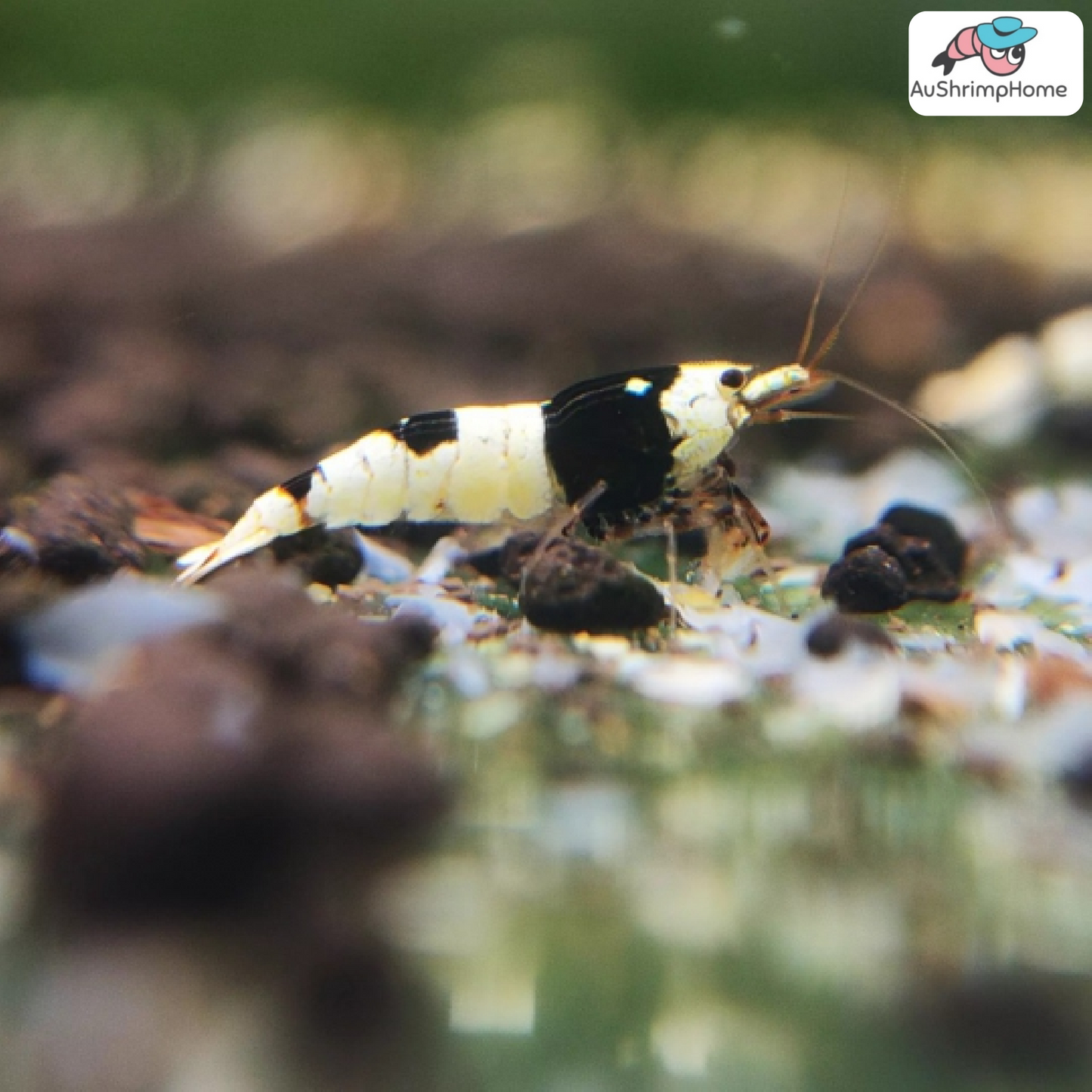
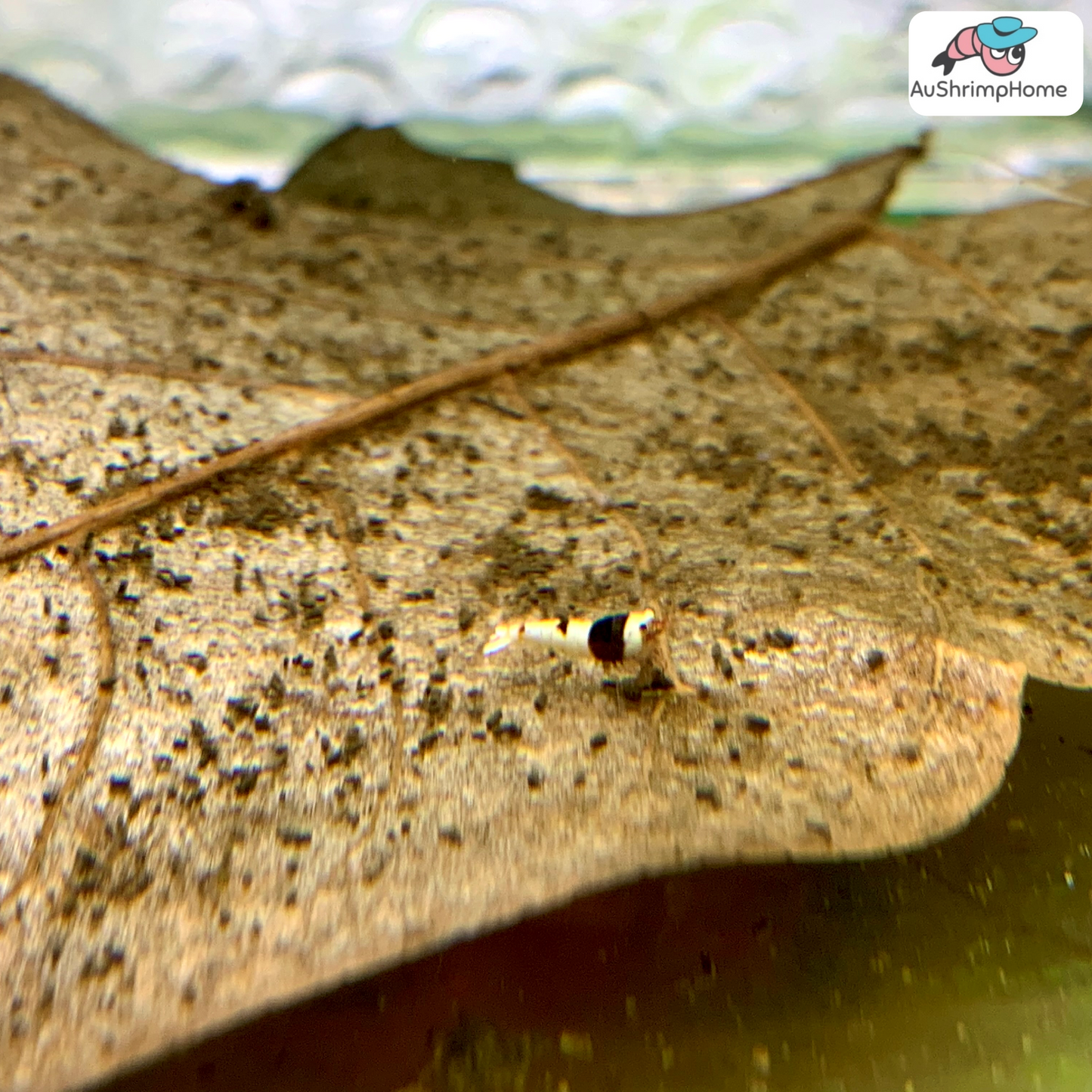
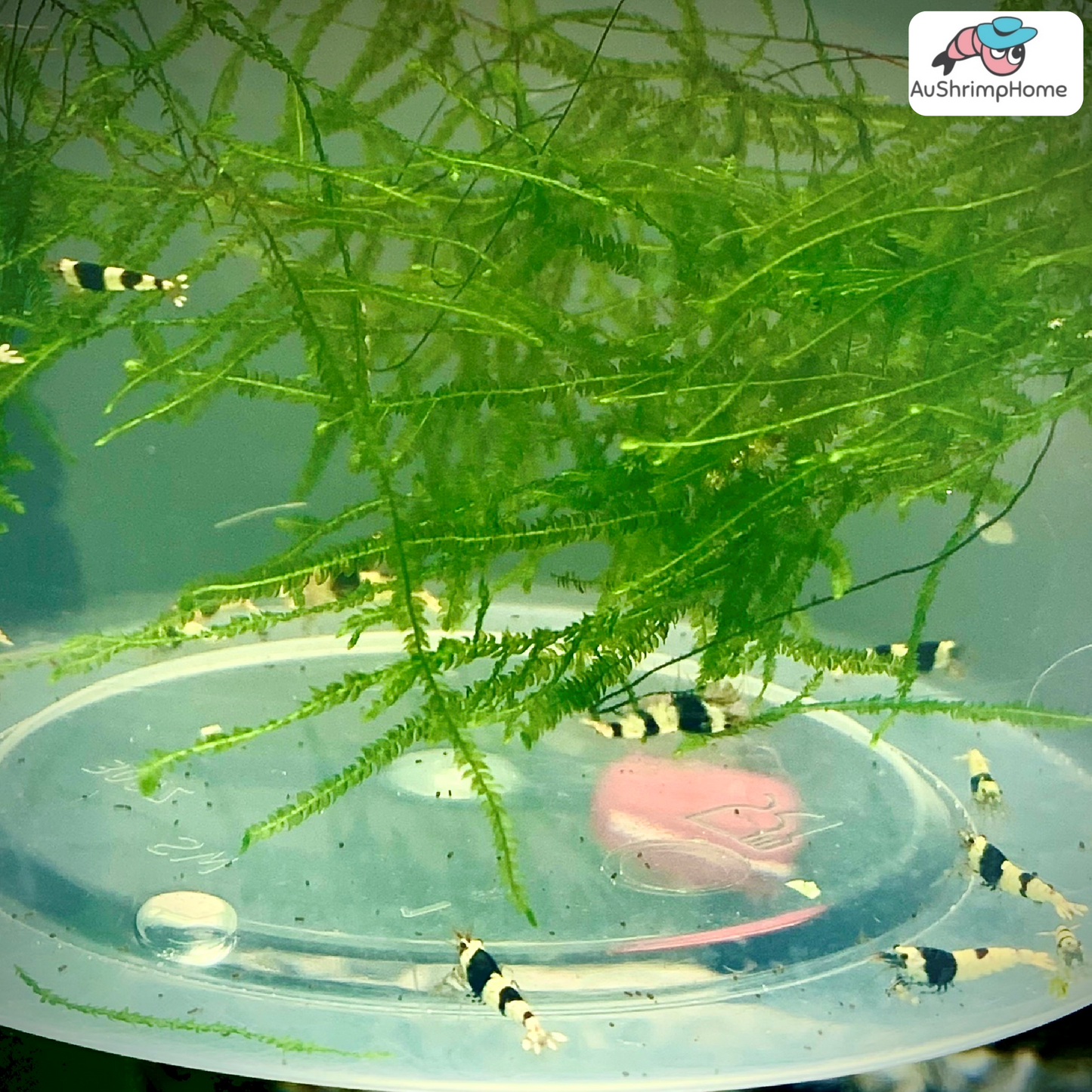
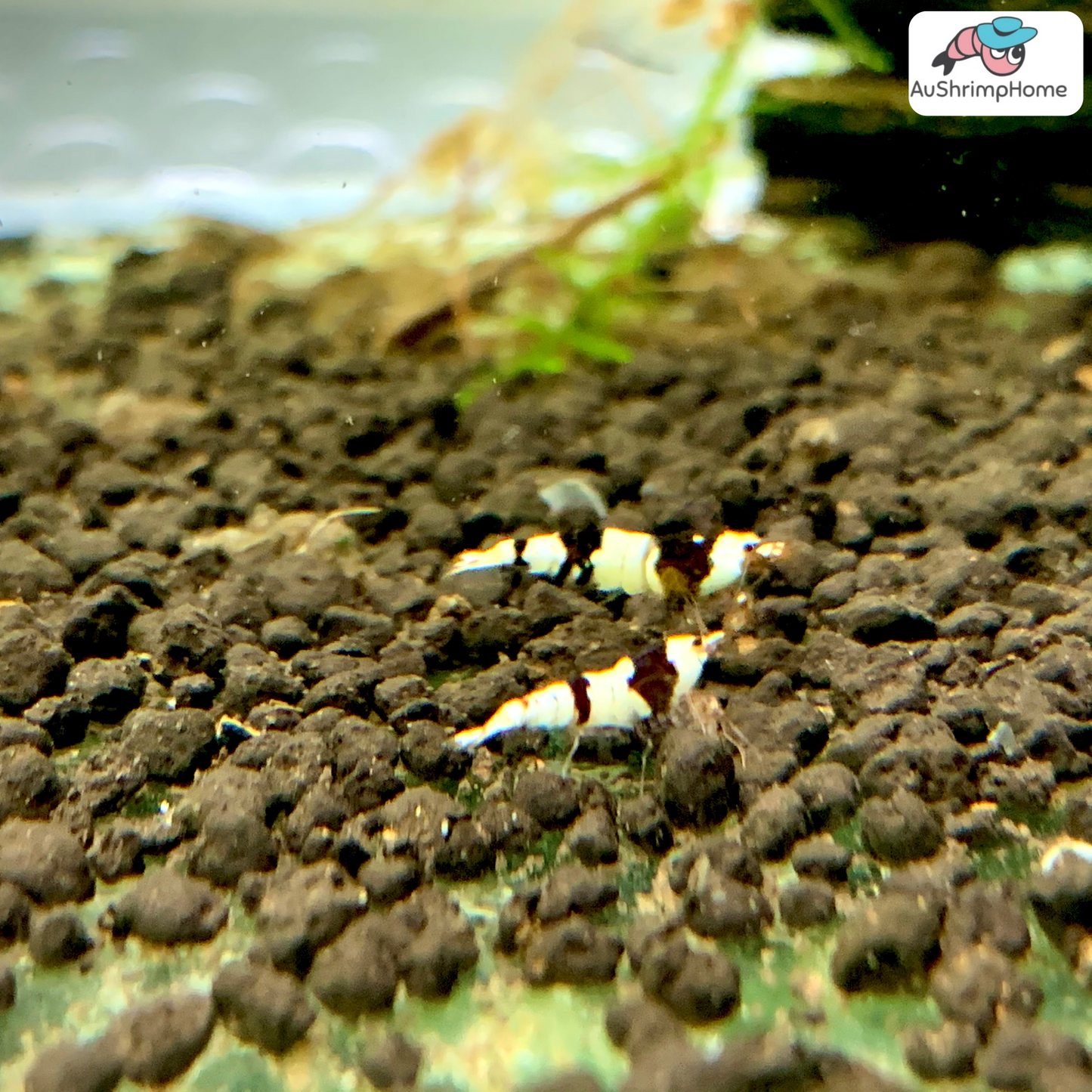
More Information
How to Take Care The Shrimps
Taking care of Freshwater aquarium Shrimps (Neocaridina and Caridina) involves providing them with a suitable environment and proper attention to their specific needs. Here are some essential care guidelines:
1. Tank Setup:
- Shrimp are relatively small and can be kept in tanks as small as 5 gallons (19 liters), but a larger tank allows for more stable water conditions.
- Provide hiding spots with plants, driftwood, and rocks. Live plants like Java Moss and Java Fern are ideal as they serve as both hiding places and a food source.
2. Water Parameters:
For Neocaridinar (Cherry Shrimps)
- Temperature: 72-78°F (22-28°C)
- pH: 6.5-7.5
- GH (General Hardness): 6-10
- KH (Carbonate Hardness): 3-10
For Caridina (Taiwan bee, Crystal Shrimps)
- Temperature: 72-78°F (22-26°C)
- pH: 6.0-6.5
- GH (General Hardness): 3-5
- KH (Carbonate Hardness): 0-10
3. Filtration:
- Use a sponge filter such as Qanvee filter or a gentle flow filter to avoid strong currents that can stress shrimp.
4. Feeding:
- Shrimp are omnivores and feed on algae, biofilm, and commercial shrimp pellets.
- Supplement their diet with blanched vegetables like Mulberry leaves, spinach or zucchini.
- Offer a varied diet to ensure proper nutrition.
5. Water Changes:
- Perform regular water changes (10-20% weekly) to maintain water quality.
- Use dechlorinated water at the same temperature and parameters as the tank.
6. Molting:
- Provide a calcium source, such as our shrimp mineral products or crushed coral, cuttlebone, to support molting.
7. Tank Mates:
- Shrimp are generally peaceful but can be preyed upon by larger fish.
- Suitable tank mates include small, non-aggressive fish like guppies or endlers.
- Avoid aggressive or predatory species.
8. Breeding:
- Shrimp breed readily in captivity.
- Provide moss or other dense plant growth for shrimp to hide their eggs.
- Maintain stable water conditions to encourage breeding.
9. Health and Observation:
- Regularly observe your Shrimp for signs of stress, illness, or abnormal behavior.
- Quarantine new arrivals to prevent introducing diseases.
10. Patience:
- Shrimp keeping can be rewarding but requires patience. Allow your aquarium to mature and stabilize before adding shrimp.
By following these care guidelines, you can create a thriving environment for your Shrimp and enjoy their vibrant colors and fascinating behavior in your aquarium.
How to Acclimate New Shrimps & Fish
Acclimating new aquarium shrimp/fish is crucial to ensure a smooth transition and minimize stress. Follow these steps for proper acclimation:
Materials Needed:
- A container or bucket.
- An airline tube or a slow-drip system (optional).
- A net.
Procedure:
- Turn Off Lights: Dim the aquarium lights or turn them off completely to reduce stress on the shrimp/fish.
- Float the Bag: Place the sealed bag containing the shrimp on the surface of the aquarium water. This allows the water inside the bag to gradually adjust to the tank temperature.
- Drip Acclimation (Optional): If you have an airline tube or a slow-drip system, set it up to provide a gentle flow of water from the tank into the bag. This method is slower but provides a more gradual transition. Adjust the flow rate to about 2-4 drops per second.
- Monitor Temperature: Ensure the water temperature inside the bag matches the tank temperature after about 15-20 minutes. This step is essential to prevent temperature shock.
- Open Bag and Add Tank Water: Carefully open the bag without allowing shrimp to escape. Using a net or your hand, gently transfer the shrimp into a clean container or bucket. Be cautious not to introduce water from the bag into the container.
- Gradual Water Exchange: Over the course of about 30 minutes to an hour, gradually add small amounts of aquarium water to the container with the shrimp/fish. This helps the shrimp adjust to the tank's water parameters.
- Net Transfer: After acclimation, use a net to transfer the shrimp from the container into the main aquarium. Avoid adding any water from the acclimation container into the tank.
- Dispose of Bag Water: Safely dispose of the water from the bag. Do not release it into your aquarium, as it may contain contaminants or pathogens.
- Observe and Monitor: Keep an eye on the newly introduced shrimp/fish for the next few hours to ensure they adapt well to their new environment. Monitor their behavior and look for any signs of stress or illness.
Proper acclimation helps reduce the risk of shock and ensures a smoother transition for your new aquarium creatures. It's an essential step in ensuring their health and well-being in your tank.
Shipping & DOA Policy
- Concerned about purchasing livestock online? Rest assured, we ship shrimps and other livestock to every corner of NSW, VIC, QLD, and SA weekly, ensuring their safe and healthy arrival. Our Dead on Arrival (DOA) policy is applied to all orders, guaranteeing your peace of mind.
- Shrimps are carefully packed in a styrofoam box and shipped every Monday/Tuesday/Wednesday early morning to avoid weekend delays. Delivery times generally range from 1 to 3 business days depending on your location.
- To initiate DOA claims, we kindly ask buyers to contact our dedicated support team either via email at aushrimphome@gmail.com or directly through our website's chat feature. In order to expedite a swift resolution, which may involve resending a new package, issuing a refund, or providing credit for a future order, we kindly request that buyers submit a clear photo of the deceased shrimp(s) inside the unopened bag within a maximum of 1 HOUR from the moment of Australia Post delivery. Your timely communication is pivotal in enabling us to promptly address any concerns and uphold our unwavering commitment to ensuring your satisfaction.
Important Notes Before Buying
- Please note that our ornamental shrimps are small, with a maximum size of around 2cm. When purchasing, you'll typically receive juveniles or sub-adults measuring approximately 0.8-1.5cm, which may display less vibrant coloration than adults. However, rest assured that they originate from the same colony and offer excellent value for your investment.
- To ensure the well-being of your shrimp/fish upon arrival, please follow the tracking number and acclimate them by slowly adding tank water to their bag/container for about one hour. This gradual transition helps them adapt to new water parameters and temperatures.
- The images featured on our website showcase the exceptional individuals and actual shrimps/fish thriving at our facility. However, please keep in mind that as living organisms, we cannot guarantee that the shrimp/fish you purchase will be identical in color and size. Keep in mind that shipping stress may temporarily affect the shrimp's coloration, especially neocaridina species, which can become pale and translucent. However, their colors will return to their vibrant state within a few days under suitable water conditions.
- Our pricing is based on current stock levels and market rates in Australia. We regularly adjust our prices to provide our customers with the most competitive rates available.
- If you encounter any issues with the color or quality of the shrimp/fish, please don't hesitate to reach out. We are committed to assisting and resolving any concerns. Thank you for your trust and support!
